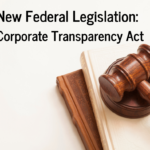There are more than 1,000 pending lawsuits against various insurance companies across the U.S. stemming from COVID-19 claims. The surge of COVID-19 government-ordered shutdowns and health stay-at-home mandates is imposing an unprecedented economic impact on businesses of all sizes. COVID-19 is forcing business owners to find ways to survive the sharp drop in economic activity. For many insured businesses, one potential avenue of relief is their business interruption insurance.
Early Decisions and Positive Signals for Insureds
In a positive nod to the insureds, a Missouri federal court has just denied an insurance company’s motion to dismiss and held that a group of hair salons and restaurants had adequately alleged that they suffered a direct physical loss from the presence of the virus on their property. (Studio 417 Inc. et al. v. The Cincinnati Insurance Co.)
Finding the opposite, a California federal judge just ruled that a restaurant seeking coverage for lost income stemming from lockdowns had failed to demonstrate it was entitled to recovery due to there being no direct physical loss or damage. (10e LLC v. Travelers Indemnity Co. of Connecticut et al). The 10e judge explained that “impairment to economically valuable use of property” cannot be used to argue a “physical loss or damage” to such property and gave Plaintiffs two weeks to file an amended complaint. Despite this initial unfavorable outcome, rulings from the California court will have little persuasive impact on Indiana and other Midwestern jurisdictions.
Both the insured and insurers have filed a variety of dispositive motions to dismiss and decide certain claims at issue. For example, some plaintiffs have argued that the mere presence of COVID-19 on their property and real estate fits the definition of direct physical harm. Others have taken the position that government-ordered closures directly impact use of the property and should therefore be considered a covered loss. Between these two approaches is a myriad of policy language and exclusion dissection aimed at determining what specific types of coverage constructions will include such losses.
In Indiana, the most-watched matter is the Indiana Repertory Theatre (the “Indiana Theatre”) case about being forced to shut down due to COVID-19 restrictions and government orders. Indiana Theatre is suffering millions of dollars in lost revenue as a result. Arguing for insured and insurance coverage for these losses, the Indiana Theatre recently filed a Motion for Partial Summary Judgment explaining that there was undoubtedly a direct physical loss due to their inability to operate and occupy their theatre space. In their Brief in support of the Motion, Indiana Theatre cites a variety of promising case law that creates a compelling constellation of precedence in favor of small businesses seeking coverage. Rather than duplicate this effort, we are allowing this case to progress before we take the next steps for our clients in this arena.
Indiana courts have recognized the need for “distinct rules of construction” when examining insurance contracts. (Auto-Owners Ins. Co. V. Harvey (2006)). These rules of construction favor the insured, such as interpreting undefined policy terms from the perspective of an ordinary policyholder of average intelligence, (Travelers Indem. Co. V. Summit Corp. Of Am. (1999)), to construing any insurance policy ambiguity in favor of coverage. (Eli Lilly & Co. V. Home Ins. Co. (1985)). These insured-favorable holdings reduce the burden of policyholders in showing they have the only reasonable or best interpretation of a disputed term. Instead, policyholders need only provide a reasonable interpretation of an ambiguity. (Am. Econ. Ins. Co. V. Liggett (1981)).
These favorable policy construction holdings and practices construed against insurers is “driven by the fact that the insurer drafts the policy and foists its terms upon the customer.” (Am. States Ins. Co. V. Kiger (1996)). As a result, our policyholders should expect a “broad reading of coverage provisions, and [a] narrow reading of exclusionary “pandemic” provisions that should result in the resolution of ambiguities in the insured’s favor, and [a] construction consistent with the insured’s reasonable expectations.” (Hampton Med. Grp., P.A. v. Princeton Ins. Co. (2004)).
Although it is too early to tell how the courts will react to the Indiana Theatre’s case, the cited case law and argument strategies presented are being closely monitored. As mentioned in yesterday’s Wall Street Journal article “Insurers Gain on Businesses in Virus Rulings,” many states such as Indiana will help decide how such favorable law benefits policyholders, but “we won’t know which way the wind is blowing” until the “states more favorable to policyholders deliver rulings . . . .” (Wall Street Journal, Scism (9/2/2020)). Patience remains the recommended course of action as we wait for such rulings and appeals to progress through the states.
Business Interruption Insurance Explained
KDDK has a long history of pursuing insurance coverage claims. Business interruption and other insurance offers protections for businesses against sudden, unforeseen disasters that impact income and operations. While each insurer offers different varieties of such insurance, business interruption insurance is usually bundled with other insurance policies and may cover situations such as government-mandated closures or broad, “all-risk” coverage.
The issue many policyholders are currently facing is the wave of insurance companies denying coverage and disputing that commercial insurance policies cover the business interruption losses occurring due to the COVID-19 pandemic. These decisions on coverage will vary from state to state and hinge primarily on distinct, jurisdiction-specific case law. Many Plaintiffs across the United States are arguing that their “all-risk” coverage should include all losses incurred due to the pandemic—especially if the policy in question lacks a specific-enough virus or pandemic carveouts to limit coverage for this specific COVID-19 virus.
In response, many insurance companies are arguing that that coverage only extends to losses resulting from a direct physical damage to property, such as an earthquake or hurricane, and not from a virus or pandemic that causes illness. While it is too early to tell exactly how the courts will handle these arguments, there are some early positive indicators and favorable case law that are poised to help provide reinforcement to businesses facing coverage denials.
For additional information and individualized guidance on this or any related topic, please contact one of the following KDDK attorneys:
 |  |  |
| Mike Schopmeyer mschopmeyer@KDDK.com (812) 423-3183 | Monica Edwards medwards@KDDK.com (812) 423-3183 | Matt Rust mrust@KDDK.com (812) 423-3183 |




